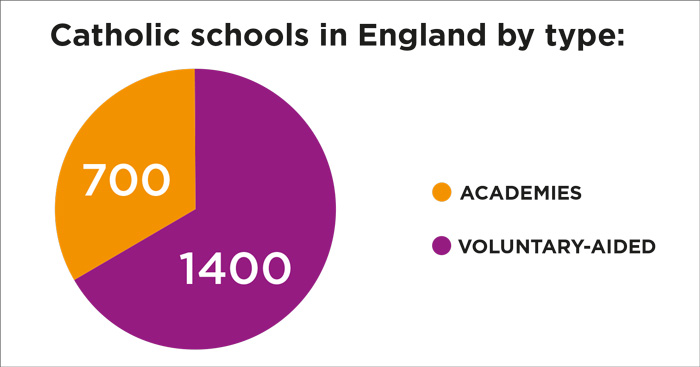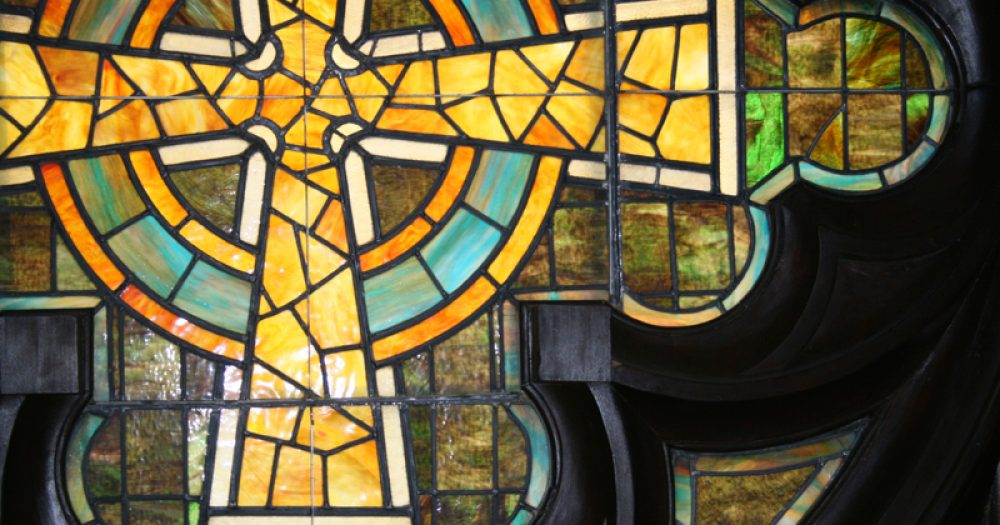A push by Catholic dioceses to convert schools into academies has sparked legal threats, governor revolts and cheerleaders-turned-whistleblowers condemning heavy-handed tactics.
The rapid conversion of Catholic schools is backed by ministers who want to turbo-charge their academy revolution.
But recent history suggests the conversion en masse of schools into new trusts – across huge regions – is the perfect recipe for academy disaster.
Schools Week investigates…
‘Diktat followed by coercion’
Once cautious about academies, many dioceses now have strategies to move their schools into trusts. All 19 dioceses currently have at least some academies, with 700 nationwide – up from just three in 2010.
But another 1,400 – or two-thirds of Catholic schools – remain voluntary aided. And only a handful of dioceses have fully academised. Those that are now attempting to follow suit are running into problems.
The Archdiocese of Birmingham has launched multiple campaigns to rapidly convert and consolidate all schools in chosen MATs. Despite a five-year push, 90 schools remain voluntary aided.
However, the archdiocese has been accused of “diktat followed by coercion” by the chair of one Catholic trust that was expected to merge.
Jim Foley claimed he was sacked as Holy Spirit MAC chair after penning and sharing a letter condemning his archdiocese – despite supporting its MAT vision. He claimed he had seen governors “intimidated” and accused the archdiocese of showing “no interest in dialogue” or answering questions.
Going full pelt is fine, but people have to feel they’ve had open discussion
In Hallam diocese, four unions recently threatened legal action after it secured approval from the Department for Education to academise 19 schools. Conversion dates were set and legal transfer talks begun (including to move staff over to new academy contracts) before governors had even voted on the plans.
The area’s regional schools commissioner had to write to school leaders defending its involvement last week. One well-placed source said four boards had rejected conversion.
“Going full pelt is fine, but people have to feel they’ve had open discussion,” said Frank Norris, an education adviser and former trust chief executive. “Otherwise conversions get into difficulty, or later, senior leaders leave.”
Birmingham said it was continually listening and consulting, and Foley welcomed recent changes in approach.
Hallam did not respond to a request for comment.
Foley also said that dioceses such as Nottingham and Plymouth succeeded with rapid conversions as they “rolled the pitch” before confirming plans.

But dioceses are getting caught up in wider battles over academisation.
Unison has polled staff in six schools about industrial action over plans for them to join a DfE-backed Catholic pilot trust this year.
The St Joseph’s Catholic MAT has been established with £1.25 million government funding to trial intensive turnaround measures in north-west schools.
The NAHT has also pushed back against dioceses over academy plans, securing several clear commitments to governing body consent.
Too much power, or too little?
Some link resistance and heavy-handedness to bishops having too much power.
Foundation governors can face “tension” between their academy scepticism and their role representing the bishop, Foley said.
Disloyalty risks dismissal, though Foley noted that governor recruitment woes gave them bargaining power.
“Am I meant to go to the Pope?” asked one voluntary-aided governor who resigned over alleged diocese bullying. She complained to Ofsted, who vowed to investigate only during their next school visit.

Emma Knights, chief executive of the National Governance Association, said governing boards should not merely “rubber-stamp” decisions.
But the majority of Catholic school boards are foundation governors – appointed by the bishop to represent their interests, the Catholic Education Service (CES) states.
A Lancaster Diocese document, for instance, states it is “important” for foundation governors to “know and implement the bishop’s policies on education”.
The NAHT has called on CES to intervene in academy disputes. But Paul Barber, CES director, said its role is in “supporting dioceses, not holding them to account. People think we’re head office.”
There are 19 dioceses, each overseen by their own bishop. Foley also wants more national leadership: “You’ve got 19 responses instead of a national one. Bishops went their own way with academisation.”
But Barber said church structures date back “two millennia”, while dioceses have “led the way developing robust accountability measures”.
Knights added there can be value too in dioceses “working out what’s right for them”.
Barber added Catholic trusts are often less centralised than other large MATs. But he noted most dioceses will “in the immediate future run a mixed economy”.
MATs reap rewards
Yet Catholic dioceses say MAT projects are already reaping rewards. The Diocese of Hexham & Newcastle began consolidating schools in four MATs in 2019. Academy numbers have rocketed from 45 to 121 of its 156 schools.
Deborah Fox, director of education, said the diocese wanted to boost staff development, sharing of specialisms and best practice, and financial viability of otherwise at-risk schools.
“We’re now seeing all that, and more. It wasn’t that we were trying to follow government policy.”
The Good Shepherd Catholic Trust in London has gained from the routine repairs funding bigger MATs receive, whereas voluntary-aided schools typically fund ten per cent of capital costs.
Chair John Anthony said it also “provides for more integrated mutual support, cheaper contracts and additional oversight”.
Mike Powis, chair of the Kent Catholic Schools Partnership, said the MAT model was “not perfect”, but other benefits included headship recruitment – a challenge nationally, as they must be Catholic.
Meanwhile the DfE has facilitated conversions by enshrining dioceses’ wide-ranging involvement in trusts in model academy legal documents and regional schools commissioner remits.
It recently allowed the Diocese of Hallam to issue academy orders without board resolutions.
Another example is that government interventions on failing Catholic schools must involve consultation with the diocese.
Rapid growth risks
But the special arrangement risks causing further problems if trusts fail. Dioceses are overseeing rapid conversion of large numbers of schools into new trusts that also span large areas – both potential red flags for academy failure.
Birmingham’s Archdiocese, for instance, has 240 schools spanning Oxford to Stoke.
Most dioceses are dividing schools up into several MATs, but Knights noted some governors’ concerns over how large they would still be.
Foley’s letter described Plymouth diocese’s academisation of 34 schools into Plymouth CAST in 2014 as a “cautionary tale that sent shockwaves around the Catholic system”.
Ofsted graded six of ten schools inspected two years later ‘requires improvement’ or ‘inadequate’. A review found the trust lacked capacity for school improvement, with “weak” systems and “poor strategic leadership”.
A cautionary tale that sent shockwaves around the Catholic system
Zoe Batten, CEO, said the MAT system was “ever-evolving in maturity and wisdom”, and more recent academies had the benefit of learning from early adopters. She said MATs looking to expand should ensure “robust due diligence” and a skilled workforce.
“The history of MATs tells us rapid growth is not always wise,” Knights added.
Hallam plans two 23- and 24-school MATs respectively, with all schools joining between March and September. But timescales are “carefully planned”, DfE-backed and ensure day-one trust capacity and economies of scale, its website says. It did not respond to request for comment.
Fox said Hexham & Newcastle ensured capacity and strong leadership by growing existing trusts rather than new ones. “We didn’t want to throw the baby out with the bathwater,” she added.

But Maura Regan, chief executive of the local Bishop Hogarth Catholic Education Trust, said restyling it as a new, renamed trust had also showed schools they were “not just joining an old regime”. Her trust has doubled in size since 2019 to 32 schools.
Dioceses also often align trusts with existing church boundaries, and unite secondary and feeder schools.
Local Catholic schools’ existing ties and shared values are an “advantage”, Knights said.
But government remains concerned about trust capacity. One in ten schools is Catholic, but they make up at least one in five currently awaiting sponsorship.
The DfE is therefore piloting capacity-building grants for multiple dioceses, and the white paper could see more funding.
But NAHT national secretary Rob Kelsall warned ministers are “putting a lot of faith in Catholic MATs to deliver its academy mission – it needs to stop heavy-handed tactics to prevent that coming back to bite it.”
















In the Diocese of Hexham and Newcastle 1/4 of all schools have had a change of Head and Deputy since 2020. Some experienced leaders have got pay rises from the Trusts and left their schools to join Trust central teams, some are going for early retirement because they don’t like what’s happening others are leaving Catholic education to join LA schools. A disaster in terms of leadership but the Diocese are saying nothing about that.
Well of course if you are Chair of a Catholic board, appointed by the Bishop to act on his behalf and you write a letter which you make public ‘condemning’ your archdiocese you can hardly be surprised if the Archbishop doesn’t take too kindly to you.
And much of the opposition and legal action is still by the Unions which have made very clear their opposition in principle to academies.
It would. be very welcome if the Unions would leave us in peace to carry on with the work of providing high-quality Catholic education in our Catholic schools instead of fomenting disruption.
But quite a balanced article in spite of that. Yes, there are always going to be challenges, but the view of Bishops and many of those who do already work in the Catholic MATs are that there are many advantages to being in a multi-academy trust. It would be great is the Unions would work with us rather than against us.